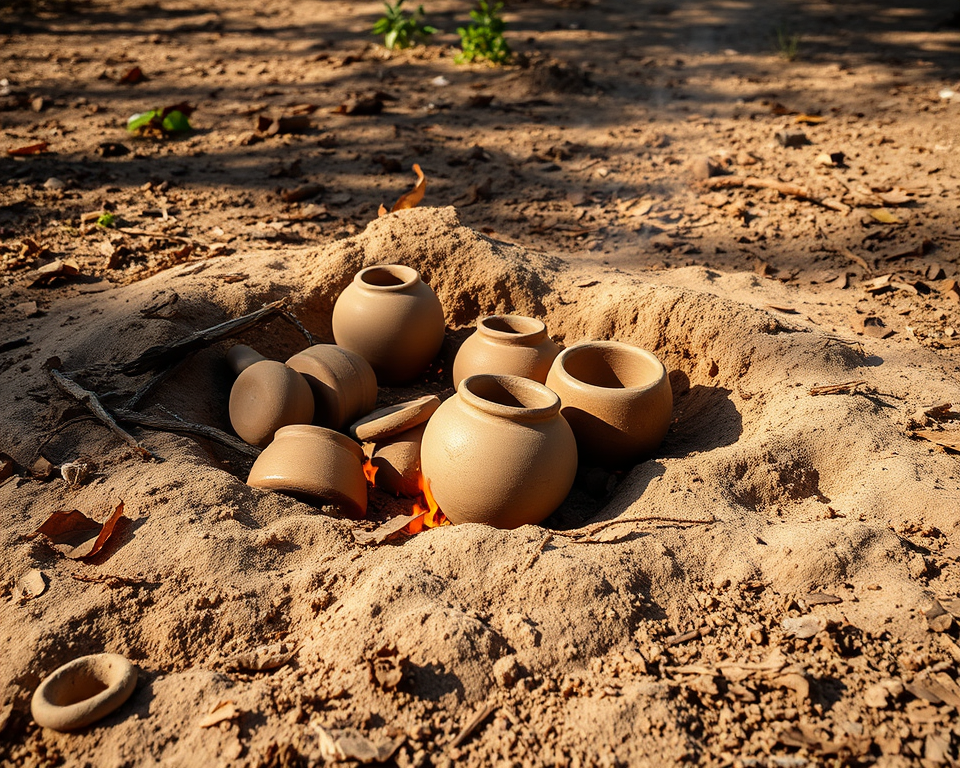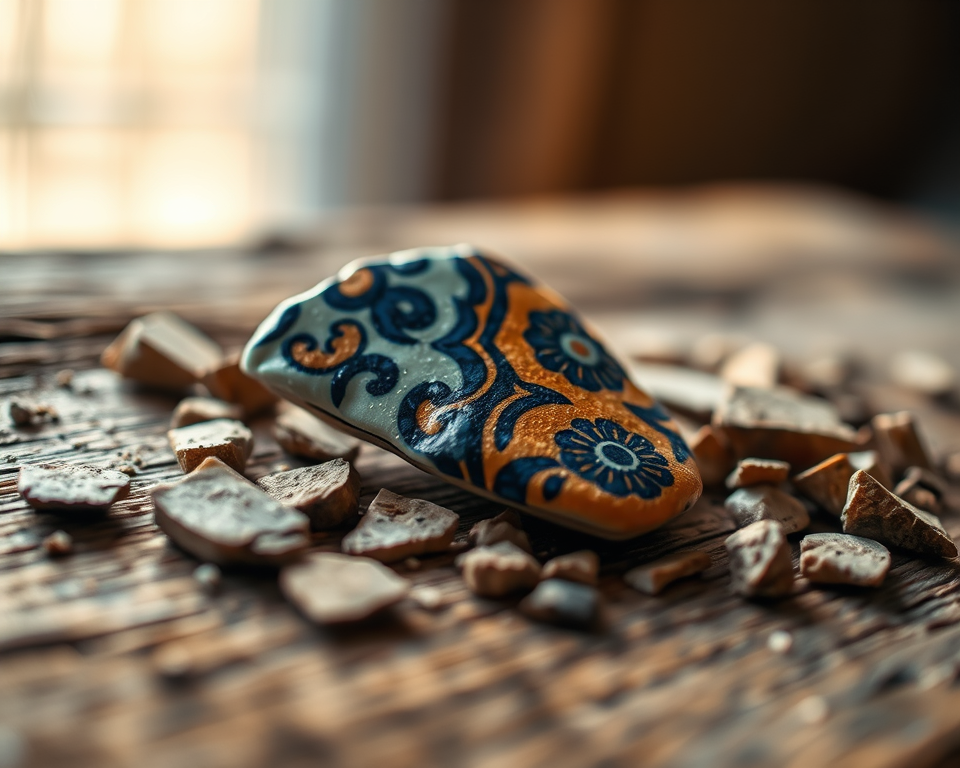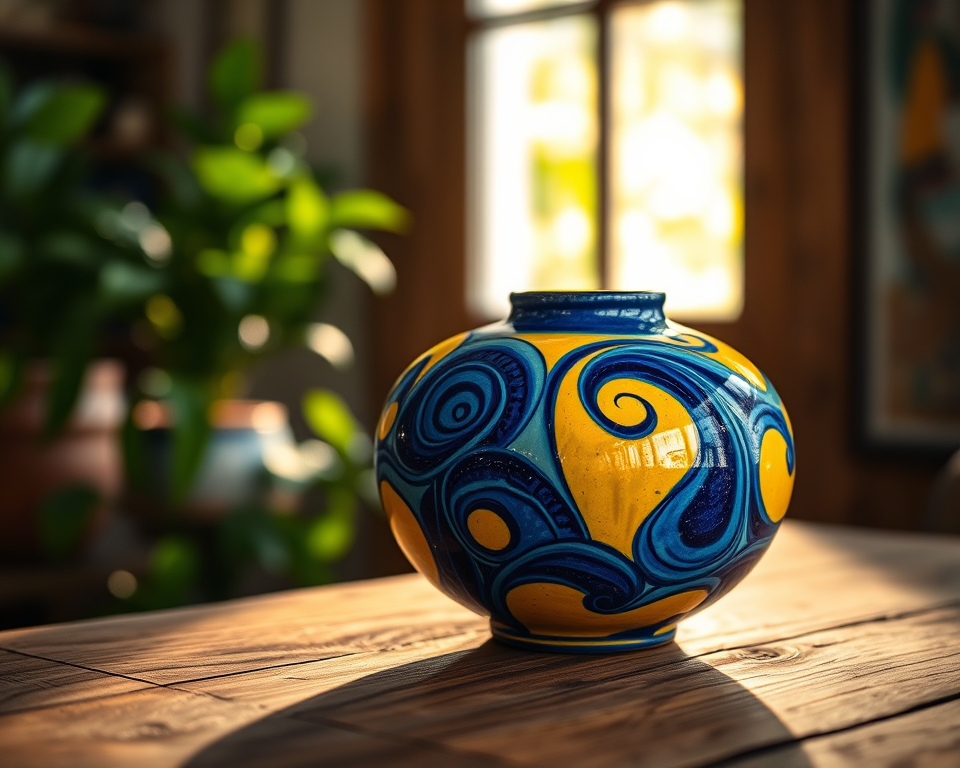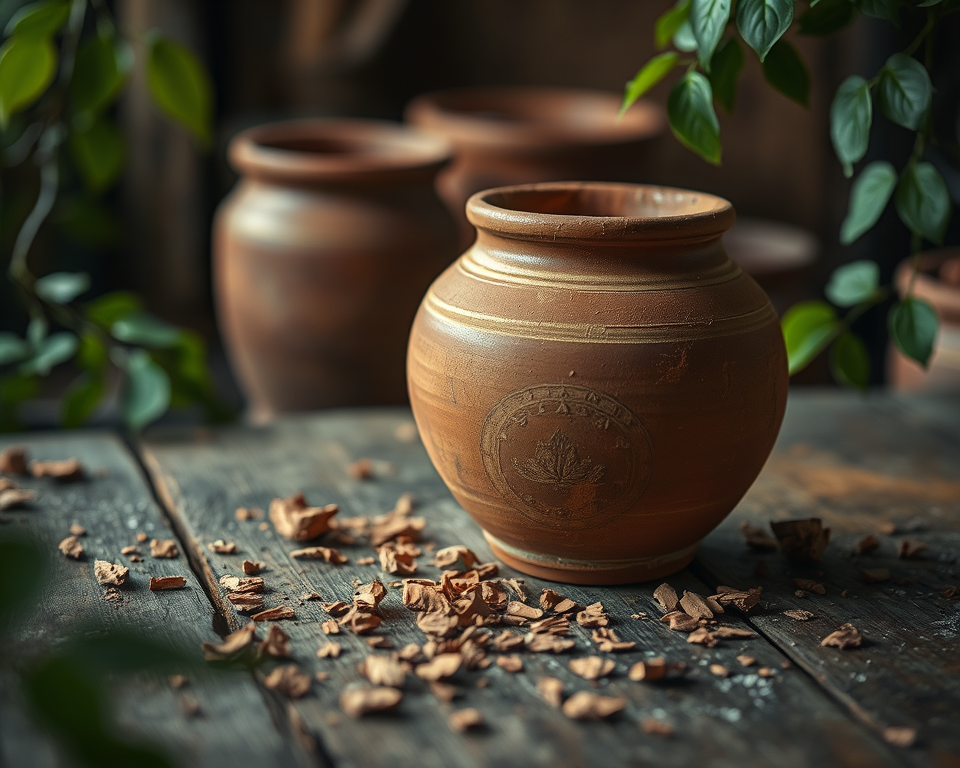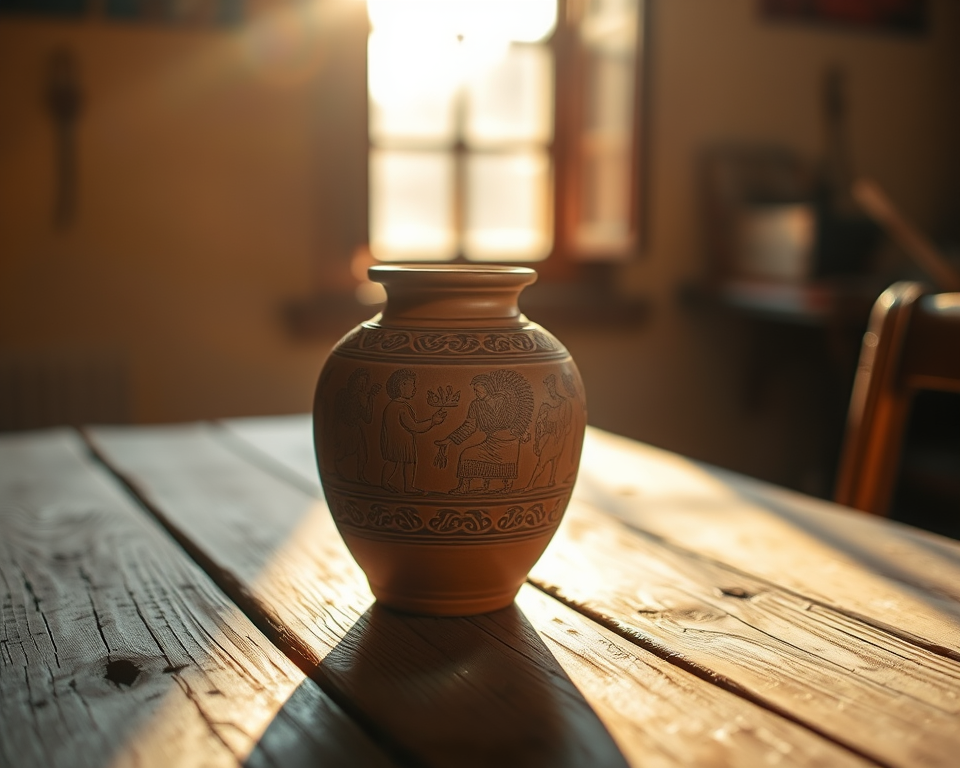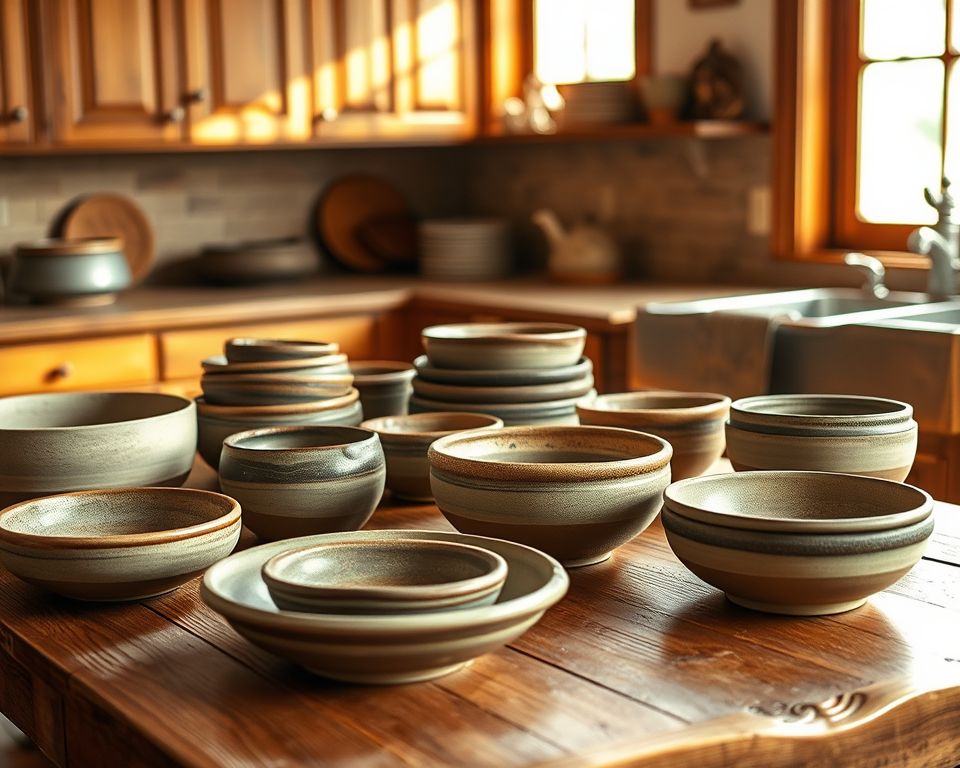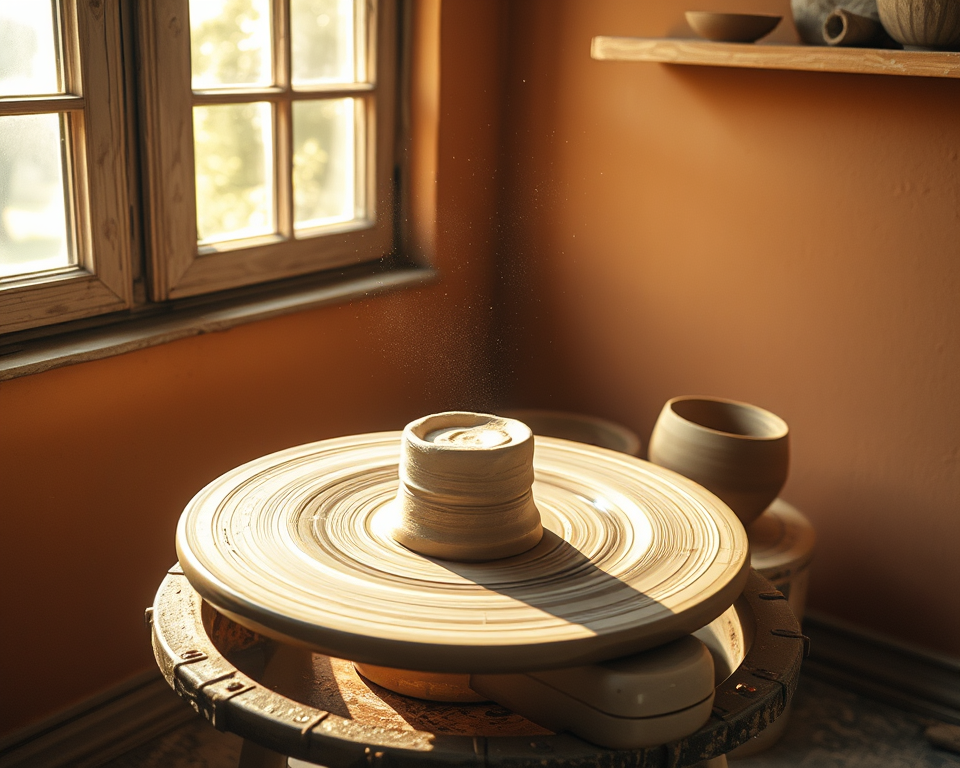Pit firing is one of the oldest and simplest firing methods used to create pottery. In this process, pottery pieces are buried in a pit and then fired using natural materials like wood, leaves, and even straw. How It Works First, you dig a shallow pit in the ground. Then, you place your pottery inside,
Author: Lila Emerson
Hi, I’m Lila! I’ve been captivated by the art of pottery for as long as I can remember. From the moment I first touched clay, I knew I had found my passion. Through my website, CraftedInClay.com, I share my love for pottery, offering tutorials, tips, and inspiration for anyone eager to discover, learn, and master the art of pottery. Whether you're a beginner or a seasoned artist, I’m here to help you shape your creative vision into something beautiful!
Creative Ways to Repurpose Pottery Shards
I remember the first time I stumbled upon a beautiful collection of pottery shards at a local flea market. It was like finding hidden treasures! These pieces of history told me stories long forgotten, sparking a curiosity that drove me to delve deeper into their significance. Beyond their historical importance, I learned that pottery shards
What Makes Vallauris Pottery Stand Out in the Art World?
When you think about pottery and ceramics, what’s the first thing that comes to mind? It’s likely something unique, artistic, and perhaps a bit eccentric. Well, let me tell you, Vallauris pottery embodies all that and more, blending history, creativity, and craft into stunning pieces you can’t help but admire. Whether you’re a seasoned collector,
Explore Global Pottery Hotspots for Art Lovers Everywhere
Ever felt that tingle of excitement when you stumble upon a beautifully crafted piece of pottery? I know I have! There’s something truly enchanting about pottery—each piece is a story, a connection to its creator, and a window into the culture it comes from. I’m here to share some of the most remarkable pottery production
Easy Pottery Projects You Can Start at Home Today
Ah, pottery! There’s something about molding clay that feels so… satisfying, right? Whether you’re looking to express your creativity, find a new hobby, or simply relax with a bag of clay and a few tools, self-teaching pottery is totally within your reach. Trust me, you don’t need to sign up for an expensive class just
Pottery Through the Ages: A Look at Key Discoveries
When I first stumbled upon the mesmerizing art of pottery, it was like I’d opened a door to the past. Each vase, each bowl, told a story—a narrative woven through time, culture, and creativity. If you’re like me, a lover of history or simply curious about how this ancient craft has shaped societies, you’re in
A Beginner’s Guide to Discovering Pottery Shape Options
When I first dipped my hands into the world of pottery, I felt a thrilling excitement mixed with a dash of anxiety. Could I really shape the clay into something beautiful? If you’re just starting out on this artistic journey, you’re likely feeling the same blend of anticipation and nervousness. Pottery isn’t just about making
Essential Techniques for Beautifully Painted Pottery
When I first dipped my brush into a pot of paint for some pottery, I was a mix of excitement and, let’s be honest, a bit of anxiety. I mean, I was a total beginner! But as I explored the vibrant world of painting ceramics, I found techniques that not only transformed plain pieces of
Understanding Stoneware Pottery: Strong and Useful
Stoneware pottery is a type of clay dish that is thicker and heavier than another kind called earthenware. It’s made from a special kind of clay that is fired at very high temperatures, which makes it really durable. This means it’s great for using every day, especially for dinnerware like plates and bowls. Unlike earthenware,
Beginner Potter’s Toolkit: Must-Have Supplies and Tips
Stepping into the world of pottery can feel like stepping onto alien terrain, can’t it? I remember my first time—I was so excited but also terrified that I’d mess everything up. What if I rolled out a lopsided pot or, heaven forbid, turned a block of clay into a catastrophe? But fear not as I

